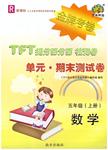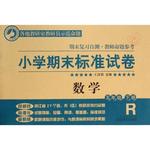
“NOW I just don't believe that. ”Surely all of us, at some point, have watched a movie and thought: It's simply badly researched,or the makers must think we're fools. Recently, The Daily Telegraph ran a humorous piece on untrue tech moments from some top movies. Let’s see what they are all about.
Tom Chiver, the writer of The Daily Telegraph uses his first example from the movie Independence Day, in which a character comes up with a virus(病毒)which destroys Windows the computer system the alien (外星人)spacecraft uses. “It's a good thing that they didn't have Norton Anti-virus,” jokes Chivers.
It's just one case of a movie that takes a lot of license with its science. Another one Chivers mentions is from the movie Star Wars, where the glowing light beams (光束)traveling through space look very impressive. But the problem is that in space there are no air particles (粒子)for the light to reflect off. In reality, they'd be invisible(看不见的), which wouldn’t look so cool on the big screen.
Most people think that the mind—bending Matrix films are made for great viewing. But for Chivers, the science in the movies is a little bit silly. He comments “…the film is based on the idea that humans are kept alive as electricity generators (发电机). This is not just unlikely —it's basically impossible. They would need more energy to stay alive than they would produce. It's just like saying that you'll power the car with batteries, and keep the batteries charged by running a generator from the wheels. ”
And finally, as Chivers points out, DNA is not replaceable. But this bit of elementary genetics passed the makers of the 2002 Bond film Die Another Day by. In the film the bad guy has “gene treatment” to change his appearance and his DNA, which is completely impossible in our real world.
1.Which of the following does the writer agree with about the movie Independence Day?
A.It's a science fiction movie.
B.It's about the alien spacecraft.
C.It's produced by Tom Chiver.
D.It's a jokey and humorous one.
2. What is mainly talked about in the 4th paragraph?
A.How we can power the car with batteries.
B.How Tom Chiver thinks of the Matrix films.
C.How humans are kept alive as power generator.
D.How the Matrix films are made for great viewing.
3.Which of the following is true according to the passage?
A.The movie Star Wars is about the light beams in space.
B.The author doesn't take the science in movies seriously.
C.Nowadays nobody believes in science movies any more.
D.There is a horrible virus in the movie Independence Day.
4.The underlined word “They” in the 4th paragraph refers to ______.
A.human beings B.car wheels
C.Matrix films D.electricity generators
1.A
2.B
3.D
4.A
【解析】
试题分析:这篇文章主要介绍了由Tom Chiver推出的调侃电影的栏目。
1.根据It's just one case of a movie that takes a lot of license with its science.故选A。
2.根据But for Chivers, the science in the movies is a little bit silly.故答案应为B。
3.根据Tom Chiver, the writer of The Daily Telegraph uses his first example from the movie Independence Day, in which a character comes up with a virus(病毒)which destroys Windows the computer system the alien (外星人)spacecraft uses. “It's a good thing that they didn't have Norton Anti-virus,” jokes Chivers.故选D。
4.根据…the film is based on the idea that humans are kept alive as electricity generators (发电机),故选A。
考点:日常生活类短文阅读理解
点评:本题型考查了对文章段落或某一板块的理解概括能力。先阅读问题,然后带着问题,再读全文,找出答题所需要的依据,完成阅读。在词义与句义理解的基础上,结合上下文总结归纳某一段或几段的大意,对于把握文章主旨,分析全文结构都是至关重要的。对文章有了详细而全面的理解之后,就要按照文章内容、上下文的逻辑关系,作出推理判断。阅读理解涉及词汇、语法、句型、段落结构、文化背景等各方面知识。答题时,领会句子之间的逻辑关系,特别是相邻句子之间的关系,这样有利于理解全文。表示逻辑关系的标志词是连接词、副词、代词、介词短语、关系词、插入语等,通读时应特别注意。如:if, because, though, as, which, it, and, but, however, therefore, so, for example, so that, so...that, on one hand...on the other hand... 等词语。它们在上下文中具有条件、原因、让步、指代、递进、对比、列举、结果、目的、承上启下等作用,正确理解并掌握这些词汇的作用,对做阅读理解是大有好处的。


 提分百分百检测卷单元期末测试卷系列答案
提分百分百检测卷单元期末测试卷系列答案 小学期末标准试卷系列答案
小学期末标准试卷系列答案科目:高中英语 来源:2012届江苏省泰州中学高三年级学情调研测试(英语) 题型:阅读理解
They were going to Fort Lauderdale — three boys and three girls — and when they boarded the bus, they were carrying sandwiches and wine in paper bags, dreaming of golden beaches and sea tides as the gray, cold spring of New York went behind them.
As the bus passed through New Jersey, they began to notice Vingo. He sat in front of them, completely in silence.
Deep into the night, outside Washington, the bus pulled into Howard Johnson’s, and everybody got off except Vingo. The young people began to wonder about him. When they went back to the bus, one of the girls sat beside him and introduced herself.
“Want some wine?” she said. He smiled and took a swig from the bottle. He thanked her and became silent again. After a while, she went back to the others, and Vingo nodded in sleep.
In the morning, they awoke outside another Howard Johnson’s, and this time Vingo went in. The girl insisted that he join them. He ordered black coffee and some cookies as the young people talked about sleeping on beaches. When they returned to the bus, the girl sat with Vingo again, and after a while, slowly and painfully, he began to tell his story. He had been in prison in New York for the past four years, and now he was going home.
“Are you married?”
“I don’t know.”
“You don’t know?” she said.
“Well, when I was in prison I wrote to my wife,” he said, “I told her that I was going to be away for a long time, and that if she couldn’t stand it, if the kids kept asking questions, and if it hurt her too much, well, she could jus forget me. I’d understand. Get a new man, I said — she’s a wonderful woman. I told her she didn’t have to write me. And she didn’t. Not for three and a half years.”
“And you’re going home now, not knowing?”
“Yeah. Well, last week, when I was sure the parole (假释) was coming through, I wrote her again. We used to live in Brunswick, just before Jacksonville, and there’s a big oak (橡树) just as you come into town. I told her that if she didn’t have a new man and if she’d take me back, she should put a yellow handkerchief on the tree, and I’d get off and come home. If she didn’t want me, forget it — no handkerchief and I’d go on through.”
“Wow,” the girl exclaimed, “Wow.”
She told the others, and soon all of them were in it, looking at the pictures Vingo showed them of his wife and three children.
Now they were 20 miles from Brunswick, and the young people took over window seats on the right side, waiting for the approach of the great oak. Vingo stopped looking, tightening his face, as if protecting himself against still another disappointment.
Then Brunswick was ten miles, and then five. Then, suddenly, all of the young people were up out of their seats, shouting and crying.
Vingo sat there astonished, looking at the oak. It was covered with yellow handkerchiefs — 20 of them, 30 of them, maybe hundreds, flying in the wind. As the young people shouted, Vingo slowly rose from his seat and made his way to the front of the bus to go home.
【小题1】At the beginning of the story, the young boys and girls ______.
| A.showed a great interest in Vingo | B.didn’t notice Vingo at all |
| C.wanted to offer help to Vingo | D.didn’t like Vingo at all |
| A.bus station | B.apartment | C.hospital | D.restaurant |
| A.Ashamed. | B.Relaxed. | C.Nervous. | D.Disappointed. |
| A.Vingo’s experience in prison |
| B.the young people’s travel to Fort Lauderdale |
| C.Vingo’s three lovely children |
| D.the dialogue between Vingo and his family |
查看答案和解析>>
科目:高中英语 来源:2011-2012学年江苏省高三年级学情调研测试(英语) 题型:阅读理解
They were going to Fort Lauderdale — three boys and three girls — and when they boarded the bus, they were carrying sandwiches and wine in paper bags, dreaming of golden beaches and sea tides as the gray, cold spring of New York went behind them.
As the bus passed through New Jersey, they began to notice Vingo. He sat in front of them, completely in silence.
Deep into the night, outside Washington, the bus pulled into Howard Johnson’s, and everybody got off except Vingo. The young people began to wonder about him. When they went back to the bus, one of the girls sat beside him and introduced herself.
“Want some wine?” she said. He smiled and took a swig from the bottle. He thanked her and became silent again. After a while, she went back to the others, and Vingo nodded in sleep.
In the morning, they awoke outside another Howard Johnson’s, and this time Vingo went in. The girl insisted that he join them. He ordered black coffee and some cookies as the young people talked about sleeping on beaches. When they returned to the bus, the girl sat with Vingo again, and after a while, slowly and painfully, he began to tell his story. He had been in prison in New York for the past four years, and now he was going home.
“Are you married?”
“I don’t know.”
“You don’t know?” she said.
“Well, when I was in prison I wrote to my wife,” he said, “I told her that I was going to be away for a long time, and that if she couldn’t stand it, if the kids kept asking questions, and if it hurt her too much, well, she could jus forget me. I’d understand. Get a new man, I said — she’s a wonderful woman. I told her she didn’t have to write me. And she didn’t. Not for three and a half years.”
“And you’re going home now, not knowing?”
“Yeah. Well, last week, when I was sure the parole (假释) was coming through, I wrote her again. We used to live in Brunswick, just before Jacksonville, and there’s a big oak (橡树) just as you come into town. I told her that if she didn’t have a new man and if she’d take me back, she should put a yellow handkerchief on the tree, and I’d get off and come home. If she didn’t want me, forget it — no handkerchief and I’d go on through.”
“Wow,” the girl exclaimed, “Wow.”
She told the others, and soon all of them were in it, looking at the pictures Vingo showed them of his wife and three children.
Now they were 20 miles from Brunswick, and the young people took over window seats on the right side, waiting for the approach of the great oak. Vingo stopped looking, tightening his face, as if protecting himself against still another disappointment.
Then Brunswick was ten miles, and then five. Then, suddenly, all of the young people were up out of their seats, shouting and crying.
Vingo sat there astonished, looking at the oak. It was covered with yellow handkerchiefs — 20 of them, 30 of them, maybe hundreds, flying in the wind. As the young people shouted, Vingo slowly rose from his seat and made his way to the front of the bus to go home.
1.At the beginning of the story, the young boys and girls ______.
A. showed a great interest in Vingo B. didn’t notice Vingo at all
C. wanted to offer help to Vingo D. didn’t like Vingo at all
2.The underlined part “Howard Johnson’s” is most probably a(n) ______.
A. bus station B. apartment C. hospital D. restaurant
3.How did Vingo feel on the way home?
A. Ashamed. B. Relaxed. C. Nervous. D. Disappointed.
4.The paragraphs following this passage would most probably talk about ______.
A. Vingo’s experience in prison
B. the young people’s travel to Fort Lauderdale
C. Vingo’s three lovely children
D. the dialogue between Vingo and his family
查看答案和解析>>
科目:高中英语 来源: 题型:阅读理解
查看答案和解析>>
湖北省互联网违法和不良信息举报平台 | 网上有害信息举报专区 | 电信诈骗举报专区 | 涉历史虚无主义有害信息举报专区 | 涉企侵权举报专区
违法和不良信息举报电话:027-86699610 举报邮箱:58377363@163.com